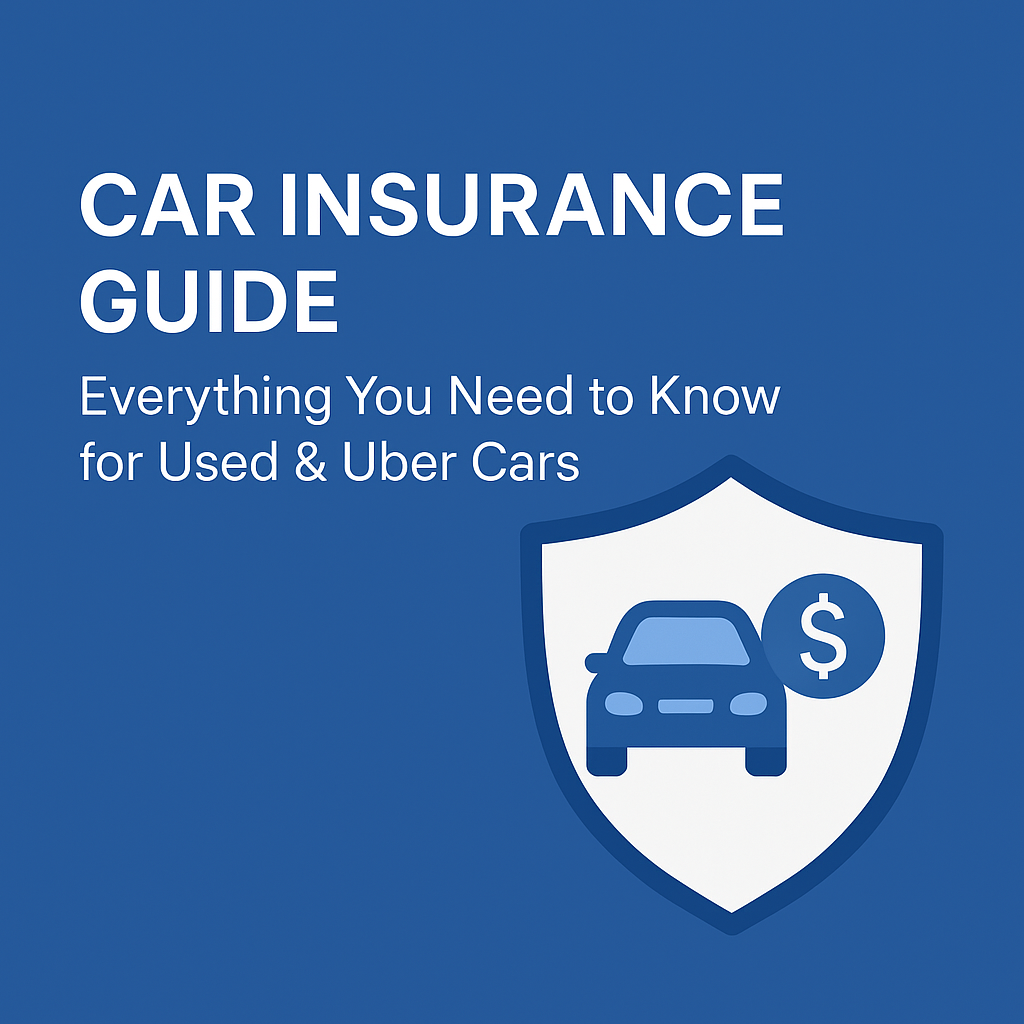Car insurance is a must-have for every driver, whether you’re driving a new or used car or even working as an Uber driver. Understanding the different types of coverage and the policies available is crucial for making informed decisions about protecting your vehicle. In this guide, we’ll cover everything you need to know about car insurance to help you navigate your options with confidence.
Do I Need Car Insurance?
Absolutely! Car insurance is essential, and it’s required by law. You cannot drive any car—new or used—without it. Auto insurance protects you financially if you’re involved in an accident or if your car sustains damage. It also covers third-party damage or injuries for which you might be held liable. This includes both personal vehicles and rental or hire cars.
Is insurance necessary to rent a car?
Yes, you need insurance to rent a car. Rental companies offer basic coverage, but it’s important to check the details of their policy before you sign. Additionally, many credit cards provide rental car insurance as a benefit, so be sure to check with your card issuer to avoid paying extra for rental coverage.
Do I Need Insurance to Drive for Uber?
Definitely. While ridesharing companies like Uber offer some insurance coverage, you are still legally required to have your own personal car insurance. This ensures you’re fully protected on the road.
What About Renting a U-Haul?
If you’re renting a U-Haul, insurance is necessary. While U-Haul doesn’t ask for proof of insurance, you’ll be responsible for any damages. U-Haul provides insurance options that can be purchased directly, depending on your needs.
Can I Buy Temporary auto insurance?
Yes, you can! Temporary car insurance offers flexible coverage for short-term use, ranging from a single day to several months. This is a great option if you only need insurance for a brief period.
Types of Car Insurance Coverage
Car insurance policies generally include both mandatory and optional coverage types. The specifics can vary based on your location, so it’s important to check what’s required in your province.
Mandatory Coverage:
- Third-Party Liability: Covers you if you cause damage or injury to others or their property.
- Accident Benefits: Covers medical expenses for you, your passengers, or pedestrians injured in an accident, no matter who is at fault.
- Uninsured Motorist: Pays for medical bills if you’re involved in an accident with an uninsured driver.
Optional Coverage:
- Collision: Covers repairs or replacement costs for your car if you’re involved in an accident, even if you’re at fault.
- Comprehensive: Protects your car against damage that’s not caused by a collision, such as theft, vandalism, or weather-related incidents.
Public vs. Private Car Insurance
In Canada, the insurance system is either public or private, depending on where you live:
- Public Systems: Used in British Columbia, Saskatchewan, and Manitoba.
- Private Systems: Most provinces, like Ontario and Alberta, use private insurance companies for auto coverage.
How to Get Private Car Insurance
There are several ways to get private car insurance:
- Bank or Credit Union: Many financial institutions offer insurance products through partnerships with larger insurers.
- Direct from Insurance Companies: Some companies sell policies directly to customers.
- Brokers: Insurance brokers work with multiple providers to help you compare plans and find the best deal.
Getting Insurance for a Used Car
Insuring a used car is very similar to insuring a new one, but the vehicle’s age and condition will affect your premium. Typically, used car insurance is cheaper than for new cars, as the vehicle’s value is lower.
How to Buy Car Insurance Online
With online platforms like Sonnet, buying car insurance is easier than ever. You can customise your coverage, purchase securely, and compare rates on comparison sites like rates.ca to find the best deal.
Documents Needed for Car Insurance
To get started with car insurance, you’ll need the following:
- Your driver’s license
- Your current insurance policy number (if applicable)
- Your driving history (last 3 years)
- Any claims you’ve made in the past 8 years
- Your vehicle’s details (make, model, year)
Renewing Your Car Insurance
Renewing car insurance is straightforward:
- You’ll receive a renewal notice 30-60 days before your policy expires.
- Review the policy to make sure it still meets your needs.
- Renew your insurance and either pay the full amount upfront or continue with your existing payment plan.
Common Insurance Terms Explained
- Deductible: The amount you pay out of pocket before your insurance kicks in.
- Liability: Covers the financial responsibility for injuries or damages you cause to others.
- Premium: The amount you pay for insurance coverage.
- Collision: Insurance that covers damages to your car when you’re at fault in an accident.
- Telematics: A system that tracks your driving habits to offer customised rates.
Call-to-Action:
Want to get started? Get a Free Auto Insurance Quote and find the best coverage for your needs today!


hi